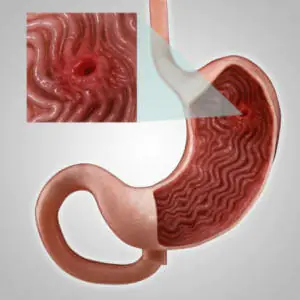The benefits of sea salt for humans are associated with the substances included in its composition, and, above all, with the presence of iodine in high concentrations. This makes it possible to use salt from the sea not only in cooking, but also in the treatment of various diseases. However, the possible harm of sea salt to the body if medical procedures are carried out incorrectly has also been proven.
The content of the articleBeneficial properties of sea salt
Due to the presence of sulfur and copper impurities in coarse and fine sea salt, it exhibits anti-inflammatory and anti-exudative activity. This makes it useful in the treatment of many diseases. But using the compound in the form of concentrated solutions will only cause harm and will give rise to the development of many pathologies.
The properties of natural sea salt are determined by its chemical composition. It is represented by 77.5% sodium chloride - ordinary salt. The remaining 22.5% includes other micro and macroelements. These include magnesium, which improves the functioning of the nervous system, and potassium, which is necessary for the optimal functioning of the cardiovascular system. High concentrations of calcium and phosphorus, the most important minerals involved in bone formation, also benefit. In addition, sea salt contains such important trace elements as selenium, silicon, zinc, fluorine, manganese, bromine, etc.
Microelements stimulate epithelial cells to retain moisture. As a result, the appearance of the skin is significantly improved. A natural inorganic compound restores damaged cells and prevents the spread of inflammation. It eliminates burning, swelling, rashes.
The use of iodized sea salt is beneficial not only for the respiratory system, but also for the central nervous system. Healing baths are recommended by folk and official medicine for neuroses and depressive conditions. They eliminate increased anxiety and restlessness, sleep disorders.
Harmfulness of food sea salt
The harm from sea salt has long been known to doctors. No wonder they always recommend excluding it from the diet when following therapeutic diets. The inorganic compound is harmful to the health of adults and children who add it to food in too much quantity.
The presence of foods rich in salt and spices in the daily menu is harmful to health. And this manifests itself primarily in surges in blood pressure. An improper diet leads to blood thickening. The heart pumps it with difficulty, which predisposes to the development of not only hypertension, but also stroke and heart attack.
Often, even after eating seeds with sea salt, headaches and tinnitus occur. And in weakened people, an increase in blood pressure can cause attacks of vomiting and loss of coordination of movements.Using sea salt for food can cause other harm. Swelling occurs - not only on the face, but also on the feet, legs, ankles, and fingers. It takes several hours to restore the correct distribution of water in the body. Edema appears due to the ability of an inorganic compound to attract water molecules and retain them for a long time. Edema puts pressure on blood vessels, nerves, and tissues, disrupting the functioning of the entire body.
The ability of real salt, sodium chloride, to irritate receptors is well known. The same effect, even stronger, occurs when a large amount of sea salt is ingested. It irritates the mucous membranes of the stomach, causing ulceration. The harm increases with increased production of caustic hydrochloric acid by parietal cells. Gastritis develops - an acute inflammatory disease of the stomach, which in the future can become chronic.Frequent consumption of salty foods disrupts the functioning of the visual apparatus. Eye pathologies worsen - glaucoma, cataracts, iridocyclitis, blepharitis, farsightedness and myopia. A person more often suffers from infectious and allergic conjunctivitis.
Dentists have proven that sea salt is harmful to teeth. Under its influence, the enamel is destroyed with the subsequent development of caries.
Rules for safe use
It is not advisable to drink pure sea salt in high doses. Consuming it in large quantities will not bring any benefit; it will cause edema of various localizations, increased blood pressure, and a deterioration in general health. The mixture for oral administration is contraindicated in severe diseases of the kidneys, liver, and gastrointestinal tract. Salt compresses, rubbing, bandages are not used if there are burns, scratches, or abrasions on the skin.
The difference between sea salt and table salt
Unrefined sea salt has an increased quantitative iodine content. Therefore, its dissolution in warm water benefits people with bronchopulmonary diseases. Iodine has the property of floating when heated, and inhaling its vapors from the air has the potential to strengthen the immune system and increase resistance to infectious pathogens.
How to select and store
There are many types of sea salt in the pharmacy assortment. It is usually sold in 1 kg packaging. Salt is also sold in more compact packages, but they most often contain aromatic additives and dyes. It should be borne in mind that if they are individually intolerant, harm will be caused to health. For the treatment to be beneficial, you need to store the product in a dry place, protected from sunlight.




